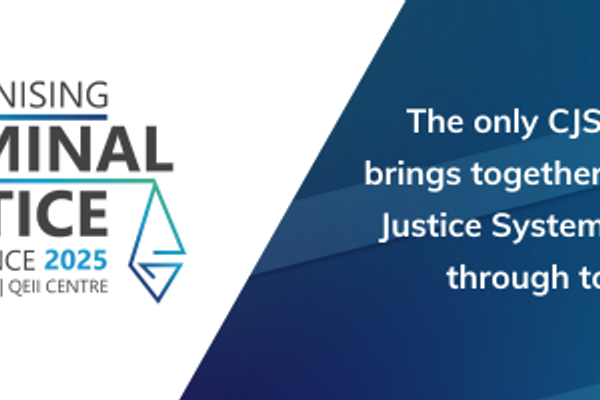Justice and Emergency Services Programme activities
The techUK Justice and Emergency Services Programme represents tech firms operating in the public safety, criminal justice, and blue light markets. We create strong relationships between members and public sector customers, encouraging industry engagement, and unlocking innovation. Visit the programme page here.
Event Round Up: Justice and Emergency Services Reception 2025
Building on the success of last year, we were pleased to elevate our annual reception to a conference, hosting an array of fantastic speakers representing the policing, justice, public safety, government and technology industry.
Procurement Act live! Essential tips for Justice and Emergency Services Suppliers
Our Justice and Emergency Services (JES) Procurement Sub-group has provided valuable tips to help JES suppliers navigate the new Procurement Act.
Interoperability in Justice and Public Safety Forum – Third Session
Our JES Interoperability Forum will serve as a collaborative space where tech companies and criminal justice and emergency services stakeholders can engage openly, discussing and supporting the communication transformation and data sharing across police forces, ambulances, fire services, courts, prisons and probation services.
Technology, Borders and Modern Slavery: A Call for Expertise
If your organisation is conducting exciting work on building ethical solutions for migration and modern slavery through technology.
Upcoming events
Centre for Protecting Women Online (CPWO) Annual Conference
Open University, Milton Keynes Partner eventFire Innovation Forum - Geographic Information Systems (GIS)
London and online ForumLatest news and insights
Expression of Interest: National Policing Technology Reform Strategy & Roadmap Roundtable
AI Action Plan for Justice
Learn more and get involved
Justice and Emergency Services updates
Sign-up to get the latest updates and opportunities from our Justice and Emergency Services programme.
Here are the five reasons to join the Justice and Emergency Services Programme
Join techUK groups
techUK members can get involved in our work by joining our groups, and stay up to date with the latest meetings and opportunities in the programme.
Become a techUK member
Our members develop strong networks, build meaningful partnerships and grow their businesses as we all work together to create a thriving environment where industry, government and stakeholders come together to realise the positive outcomes tech can deliver.
Meet the team

Cinzia Miatto
Programme Manager - Justice & Emergency Services, techUK

Cinzia Miatto
Programme Manager - Justice & Emergency Services, techUK
Cinzia joined techUK in August 2023 as the Justice and Emergency Services (JES) Programme Manager.
The JES programme represents suppliers, championing their interests in the blue light and criminal justice markets, whether they are established entities or newcomers seeking to establish their presence.
Prior to joining techUK, Cinzia worked in the third and public sectors, managing projects related to international trade and social inclusion.
- Email:
- [email protected]

Ella Gago-Brookes
Junior Programme Manager - Justice and Emergency Services, techUK

Ella Gago-Brookes
Junior Programme Manager - Justice and Emergency Services, techUK
Ella joined techUK in November 2023 as a Markets Team Assistant, supporting the Justice and Emergency Services, Central Government and Financial Services Programmes, before progressing into Junior Programme Manager in January 2024.
Before joining the team, she was working at the Magistrates' Courts in legal administration and graduated from the University of Liverpool in 2022. Ella attained an undergraduate degree in History and Politics, and a master's degree in International Relations and Security Studies, with a particular interest in studying asylum rights and gendered violence.
In her spare time she enjoys going to the gym, watching true crime documentaries, travelling, and making her best attempts to become a better cook.
- Email:
- [email protected]

Francesca Richiusa
Programme Team Assistant for Public Sector Markets, techUK

Francesca Richiusa
Programme Team Assistant for Public Sector Markets, techUK
Fran serves as the Programme Team Assistant within techUK’s Public Sector Market Programmes, where she is responsible for delivering comprehensive team support, managing administrative functions, and fostering strong relationships with members.
Prior to joining techUK in May 2025, Fran built a meaningful career in the charitable and local government sectors. She worked extensively with both victims and perpetrators of crime, and notably led the coordination of Domestic Homicide Reviews across Surrey—an initiative aimed at identifying lessons and preventing future incidents of domestic abuse.
Outside of work, Fran is an avid traveller and a proud cat mum who enjoys unwinding with her feline companions.
- Email:
- [email protected]
- Website:
- www.techuk.org/
- LinkedIn:
- https://www.linkedin.com/in/francesca-richiusa/














